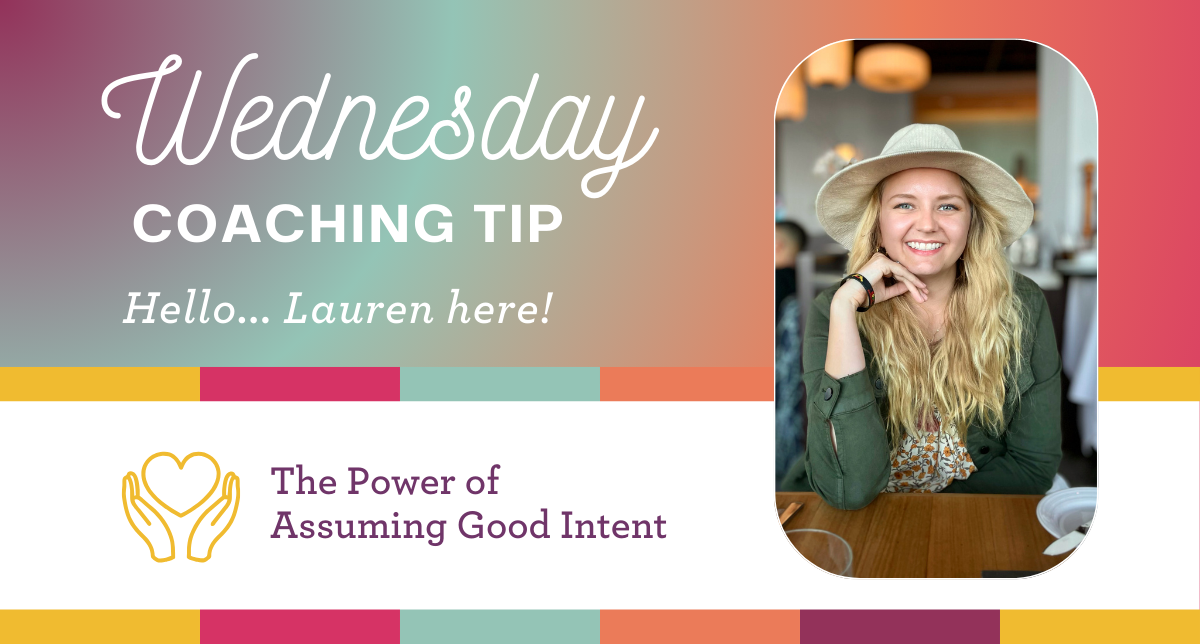
Unlock More Good Energy: The Power of Assuming Good Intent
Hi all, Coach Lauren here!
Have you ever heard the phrase “assume good intent”? It seems a bit self-explanatory, but I wanted to take some time to dive into this phrase. This is a helpful lens for unlocking more good energy in our lives.
What does “assume good intent” mean?
Assuming good intent means taking a pause, giving folks the benefit of the doubt, and asking ourselves “What do I actually know about their intentions? What does this person believe is ‘good’, and what ‘good’ were they trying to accomplish in this situation? Do I believe they were trying to harm?”
What are the benefits of “assuming good intent”?
Taking this pause and auditing our assumptions can be valuable for reducing tensions. Every time we “assume malicious intent”, it creates an enemy in our lives and makes it difficult to move forward. But, sometimes these assumptions are not valid or fair.
For example, let’s say Joe has a coworker who is normally very chatty. But today Joe passed them in the hallway and they didn’t acknowledge him. Joe could react with a mindset of “How dare they”, or alternatively he could react with “I don’t know why they didn’t say hi, but I’m going to assume they didn’t mean to hurt me”. Do you see how the latter would lend to a more productive relationship?
When we focus on productive relationships, we also brand ourselves as someone who is high caliber, thoughtful, conscientious, and collaborative. Whereas jumping to conclusions adds a level of inflammation and combativeness that is not productive to relationships or our personal brand.
But what if someone has really hurt me?
When we are struggling to make sense of someone’s choices, it can be helpful to explore where the breakdown is occurring. In my experience, it generally comes down to the following categories: 1. Their intentions were good, but their execution was a miss, 2. What they think is ‘good’ is different from what we think is ‘good’, 3. In rare instances, they actually were trying to instill hurt as a way of building themselves up.
In these instances, it can be helpful to remember that multiple things can be true at once: Someone can have good intentions and still hurt others in their execution. Someone could be truly acting out of their best understanding of “good” and their definition of “good” can be quite lacking and/or different than ours. We can understand someone’s “why” and disagree with it.
If you’re hoping to unlock more good energy in your life, I invite you to try this practice.

